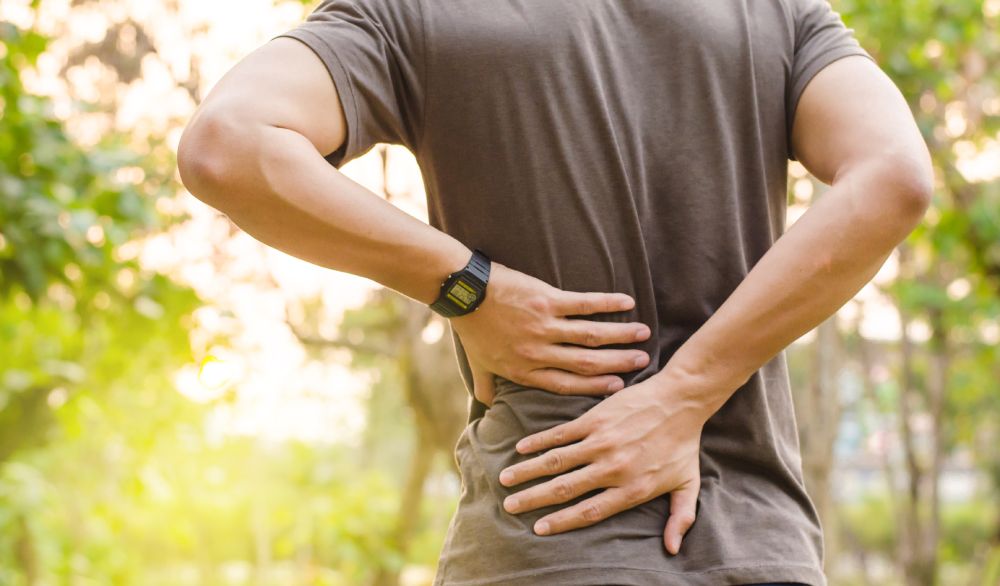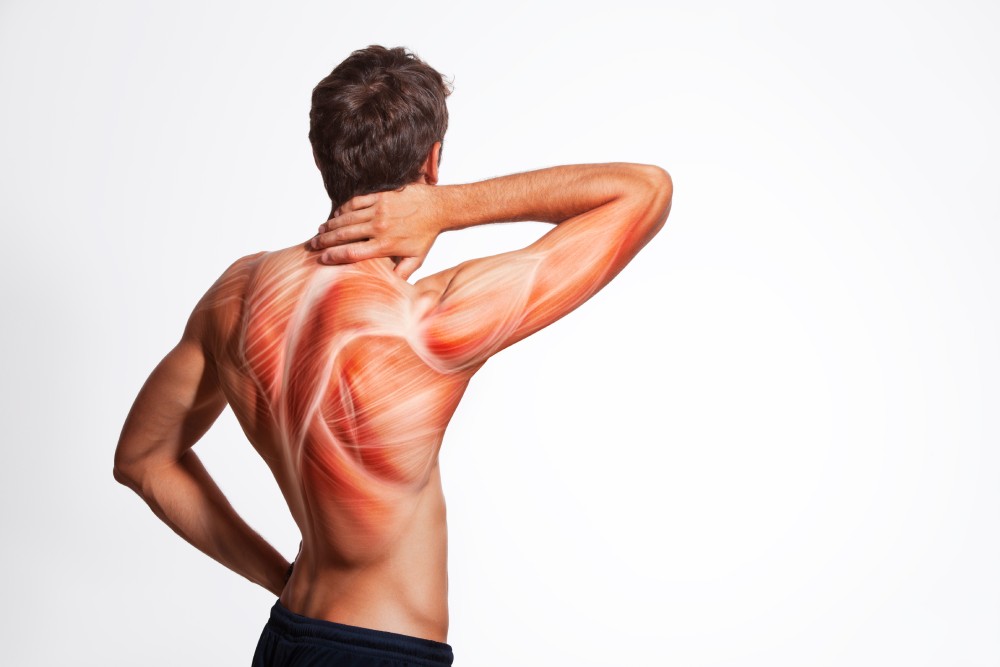If your back hurts, it can sometimes be challenging to tell if your back pain is muscular or coming from your spine. The treatment for muscle pain is different from the treatment for bone or nerve pain, so determining the underlying cause of your discomfort is important.
The best way to tell what’s causing your pain is to see your doctor. They will be able to help determine the cause of your pain and recommend treatment options for muscle pain along your spine that may range from ice or heat therapy to stretches and exercise.

How do you know if back pain is muscular?
There are several signs and symptoms that can indicate if back pain is muscular in nature:
Location of pain
Muscular pain is usually felt in a specific area of the back, such as the lower back or upper back, and can be described as a dull, achy pain.
Movement and posture
Muscular pain may be aggravated by certain movements or positions, such as bending over or sitting for long periods of time. Changing positions may provide temporary relief.
Tenderness to touch
Muscular pain may be tender to the touch, and pressing on the affected area may increase the pain.
No neurological symptoms
If the pain is purely muscular, there should be no neurological symptoms, such as numbness, tingling, or weakness in the legs.
What Causes back muscle pain?
There are many potential causes of back muscle pain, including:
Strains or sprains
Overstretching or tearing of muscles and ligaments, or even a pulled muscle, can cause pain and stiffness in the back.
Poor posture
Sitting or standing in a slouched or hunched position for prolonged periods can put extra strain on the back muscles and lead to pain.
Muscle imbalances
Weakness or tightness in certain muscle groups can lead to imbalances that put extra strain on the back muscles.
Arthritis
Degenerative changes in the spine can lead to arthritis, which can cause recurring back pain and stiffness in the back.
Osteoporosis
Weakening of the bones due to age or other factors can make them more susceptible to fractures, which can cause back pain.
Scoliosis
Abnormal curvature of the spine can cause pain and discomfort in the back.
How do you stop back muscle pain
There are several ways to alleviate and prevent back muscle pain. Your doctor can help you to know which options may be best for you.
Stretching and exercise
Regular stretching of the back muscles can help prevent muscle tightness and stiffness, which can lead to pain. Strengthening the back muscles through exercises like swimming, walking, or yoga can help prevent back pain.
As we’ve said before, “While exercise is good for you and a good exercise regimen should be part of any lifestyle, strenuous exercise, or overexertion, can lead to back problems. It’s possible to strain, sprain, or even tear a muscle in your back.”
Good posture
Maintaining good posture throughout the day can help prevent back pain. Avoid slouching and try to keep your shoulders back and down.
Heat or cold therapy
Applying a heat or cold pack to the affected area can help reduce inflammation and alleviate pain. While we cover this topic in more depth in our blog, we also mention
For pain in your lower back, consider whether the pain may be caused by an injury, such as a pulled or strained muscle, or if it is chronic. For chronic pain, heat therapy might be best. Dry heat can be applied through a heating pad and moist heat by means of a warm bath or shower. Heat will relax those muscles.
But if your pain is caused by an injury, ice is the better option. In fact, heat may make your back pain worse.
Pain relief medication
Over-the-counter pain medication such as ibuprofen or acetaminophen can help alleviate pain and reduce inflammation.
An expert opinion
Nothing can replace the advice of an expert spine surgeon like our Dr. Baig. To learn more, or to talk with the experts at Desert Spine and Scoliosis Center about your back muscle pain:



Recent Comments